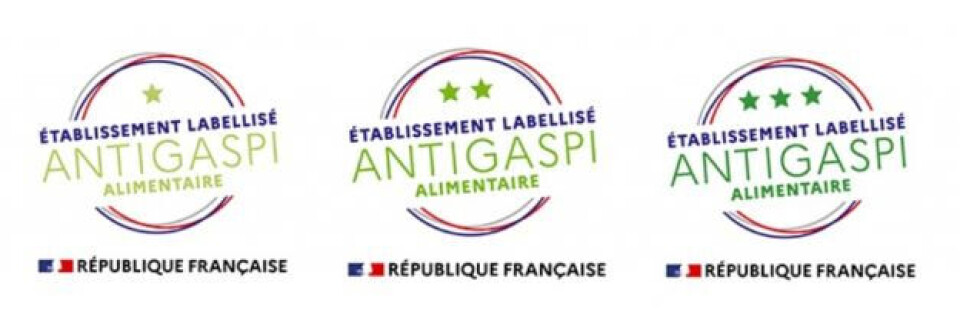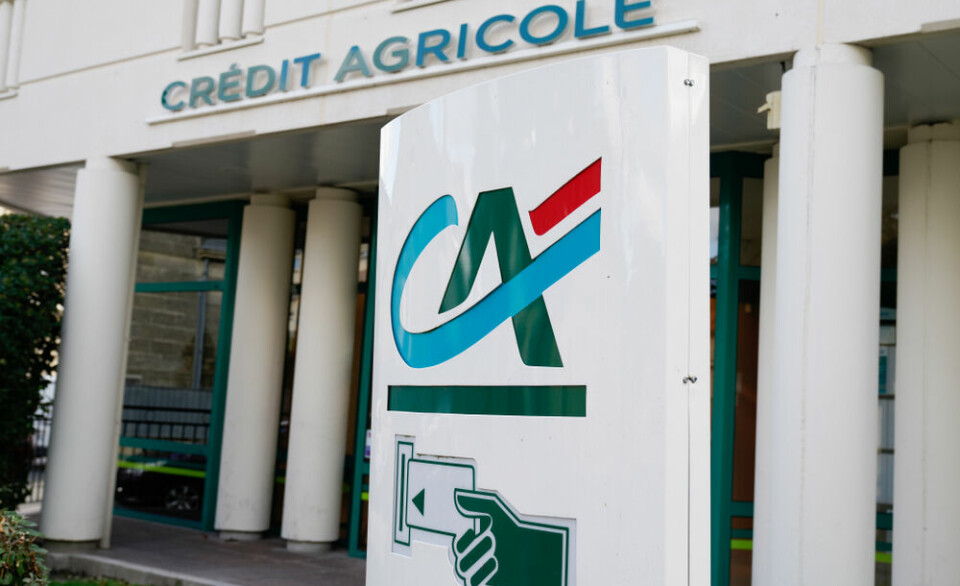-
Brittany remains on high flood alert as rivers rise and roads close
It comes after a night of heavy rain on already saturated ground
-
Why France’s EES border checks are increasing
Many more travellers are undergoing fingerprinting and facial scans
-
16 recent and upcoming changes in France you may have missed in January
Changes include a ban on chimney use, a rise in the minimum wage and increased medical fees
Label shows which French supermarkets are fighting food waste
France’s new anti-food-waste certificate is meant to help consumers find out which shops are doing the most to reduce their waste, including by donating food to charity

A new label has launched to identify supermarkets that have made the greatest strides towards eliminating food waste.

The labels, pictured above, can be shown in shop windows and will apply to supermarkets and wholesalers, as well as local traders such as butchers and cheesemongers.
There are three levels of certification, from one star, meaning ‘engaged’ in reducing waste, to three stars, meaning the store is ‘exemplary’.
A number of independent auditors have been accredited by the state to undertake the inspections.
Read more: French supermarkets can show-off their record on cutting food waste
The scheme is voluntary – it is up to the business to request the label and pay for the audit – and the label is attributed to individual stores rather than entire chains.
‘It will only be a success if companies want it to be’
“It will only be a success if companies want it to be,” said Clément Carreau, public affairs manager at Phenix, a start-up in waste reduction that participated in the working groups which drew up the label standards.
There are 17 criteria grouped into four categories:
-
Global performance: how detailed the shop’s waste action plan is, and the proportion of products not sold at full price
-
Supply and production: how well it manages stock
-
Commercialisation of food items: includes selling goods near to their expiration date
-
Management of unsold food: includes giving this to associations or using it to feed animals
Businesses usually have to donate food to charitable organisations and limit the number of discounted items to get the label.
“If nothing goes to associations, the label would not have a social dimension,” said Mr Carreau.
“And if you have lots of unsold stock, even if put to use, you are ordering too much.”
Food waste in France represents 10 million tonnes per year
Food waste in France represents 10 million tonnes per year and accounts for 3% of the country’s greenhouse gas emissions.
Some 32% of wastage comes in the production phase, 21% during processing, 14% in retail and distribution, and 33% in consumption.
Stores are not legally obliged to release figures on waste, making it difficult for shoppers to compare retailers.
Phenix has been using its own evaluation criteria since 2018 to help chains identify where they can improve.
“It’s interesting to be able to tell large chains that, out of 1,000 stores, three or four are doing better than the rest and can share best practices,” said Mr Carreau.
The firm offers solutions, such as working with charities to donate food and creating a dedicated section for products close to their expiry date.
Algorithm to determine price reductions
It also has an algorithm to determine price reductions based on the day of the week, the weather, the type of product, number of days it has left, and past sales.
“In six to eight months, we can take a shop making use of 20% of unsold stock, and get them up to 80% or 90%,” said Mr Carreau.
Food that cannot be donated for human consumption can often be used as animal feed, for which the rules are less restrictive, but there are no tax breaks for this.
The 2016 Loi Garot obliges large supermarkets to give unsold food to associations, but not necessarily every day.
Mr Carreau says chains were already donating food before this because of tax breaks and the cost of disposal.
“They don’t do it out of kindness, but for economic reasons. You pay for the quantity of your waste. By reducing this, you cut costs. The system makes sense and encourages waste reduction.”
Mr Carreau believes stores are reacting to changing views on ‘best before’ labels too: “Fifteen years ago, it wasn’t cool [to buy reduced items like this]. You’d feel ashamed.”
Read more: ‘Best before’ food labels are changing in France to reduce waste
Social media playing a role
Social media, especially Twitter, is also playing a role.
As Mr Carreau points out, “it can be costly to have photos of full bins”.
It is easier for larger stores to reduce waste, as they can invest more resources.
“Associations aren’t necessarily going to travel to small shops,” said Mr Carreau.
“We’ve heard from shops that contacted several associations and none wanted to come.”
Some schemes tackling food waste, such as Phenix and Too Good To Go, also have apps, which let consumers reserve a bagged selection of unsold food from shops and restaurants at low prices.
Lawmakers have also taken steps to cut the amount of waste that is buried or incinerated.
The use of bleach to spoil food, as a way of deterring so called ‘freegans’ (people who consume discarded food), was also banned.
Indeed, this is a point of pride for Mr Carreau: “France was a pioneer on these issues.”
Related articles
Ideas to avoid wasting fruit – and pick some for free – in France
French town collects stale bread to make energy and fertiliser
























